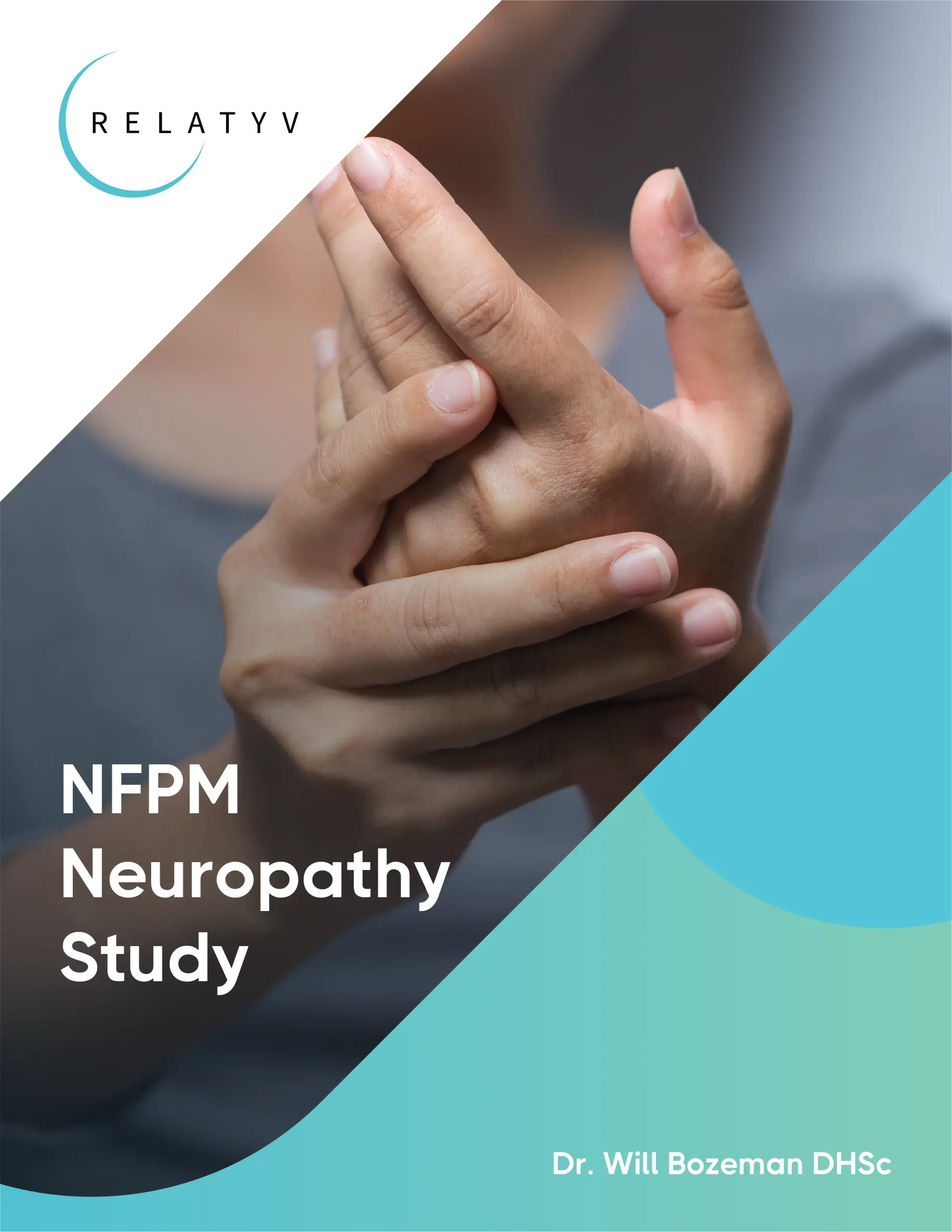Being tired is a normal part of life, but as everyone knows, it can make it difficult to complete everyday tasks, whether it’s going to work or simply running errands. Fatigue is even worse – it’s not just about feeling tired; it’s a feeling of mental and physical exhaustion that can interfere with daily life.
However, for some people, feeling exhausted is a constant struggle that goes beyond temporary fatigue. This condition is known as chronic fatigue syndrome (CFS).
What Is Chronic Fatigue Syndrome?
CFS, also known by its more scientific name, “myalgic encephalomyelitis (ME),” is a complex disorder identified by extreme fatigue.
It’s a condition that cannot be explained by any underlying medical condition. The fatigue associated with CFS cannot be improved by rest and can even worsen with physical or mental activity. This can significantly impact a person’s daily life, making working, attending school, or participating in social activities difficult.
How Chronic Fatigue Syndrome Causes Pain
CFS doesn’t just cause fatigue; it can lead to other symptoms, including pain. There are a few possible explanations for this:
- Inflammation: Viral and bacterial infections have been linked to the development of CFS. A viral or bacterial infection may trigger the immune system to produce more cytokines, which are proteins that promote inflammation.
- In some cases, this inflammatory response may persist even after the initial infection has resolved. Because inflammation can cause swelling and irritation of the nerves, it can lead to pain.
- Muscle tension: When the body is under stress or tension, muscles can become tight and painful. Constant fatigue and exhaustion can lead to increased muscle tension due to the body’s inability to relax and recover. Such tension can result in widespread pain throughout the body.
- Altered pain processing: It’s thought that individuals with CFS may have a lower pain threshold and difficulty processing pain signals due to changes in the central nervous system. This altered pain processing can lead to increased sensitivity and a heightened perception of pain.
- Nutritional deficiencies: Some studies have shown that those with CFS may have lower levels of certain nutrients, such as magnesium and vitamin B12, which can contribute to muscle pain.
Chronic Fatigue Syndrome Symptoms
CFS is a multi-faceted disorder that can manifest in a variety of symptoms. Some people may experience all of these symptoms, while others may only have a few. The severity and frequency of CFS symptoms can also vary from person to person. The following are some of the common symptoms of CFS.
Sensitivity To Light
Individuals with CFS may experience increased sensitivity to light or bright environments. This can make it challenging to be in certain settings, such as brightly lit offices or shopping centers.
Some people with CFS may even find that they have trouble looking at screens for extended periods of time. This could be due to the body’s increased sensitivity and overstimulation from external stimuli.
Tender Lymph Nodes
Lymph nodes are small, bean-shaped glands. They play an important role in the body’s immune system. In people with CFS, these lymph nodes may become swollen, tender, and painful to touch. This can result from the body’s immune system reacting to the chronic inflammation present in CFS.
Tiredness, Nausea, And Weakness
Feeling constantly tired, nauseous, and weak are common symptoms of CFS. Although being tired is part and parcel of fatigue, nausea may also be present due to the body’s heightened sensitivity to certain foods or ingredients. Additionally, a feeling of weakness may be the result of the body’s constant state of exhaustion and lack of energy.
Muscle Weakness and Joint Pain
CFS can cause muscle weakness and joint pain throughout the body. This can be due to the constant tension and strain on muscles from physical activity or increased inflammation. The severity of the muscle weakness and joint pain can vary, but it can significantly impact mobility and daily activities.
Cognitive Impairment
CFS can also affect cognitive functioning, leading to difficulty with memory, concentration, and decision-making. This “brain fog” is a common symptom of CFS and can have a big impact on daily life and work.
Such cognitive impairment results from the body’s constant state of exhaustion, making it challenging to stay focused and productive.
Cognitive Impairment
Cognitive impairment describes any decline in cognitive abilities, such as memory, language, problem-solving, and attention. Such impairments can be a sign of more serious conditions, such as dementia or Alzheimer's disease, but they can also be the result of...
Tiredness, Nausea, and Weakness
If you are struggling with chronic tiredness, weakness, and nausea, you may be battling limitations in all aspects of your everyday life - from reduced productivity at work to pain, discomfort, and low energy levels. And the situation may be made worse by the...
Sensitivity To Light And Sound
Sensitivity to light and sound can be a strange, uncomfortable condition that often leaves sufferers feeling out of control. It can make it challenging to get through the day, as normal activities become hard to bear, whether it’s going shopping under...
Joint Pain And Swelling
Joint pain is arguably one of the most common musculoskeletal complaints among adults of all ages. But the fact that this condition is so widespread does not mean that it isn't life-limiting, or that it should be overlooked. Joint pain and swelling can cause...
Joint Stiffness And Swelling
Suppose you are experiencing persistent pain throughout your joints that limits your mobility. In that case, you may be encountering joint stiffness and swelling. These challenges can significantly impact your ability to carry out daily life and enjoy the...
Tender Lymph Nodes
Everyone has experienced swollen and tender lymph nodes at some point in their life. It’s a common symptom that can be caused by various factors. Although it’s usually not a cause for concern, understanding the underlying reasons behind swollen and tender...
Risk Factors Associated With Chronic Fatigue Syndrome
Although the root cause of CFS hasn’t been identified, certain risk factors have been identified. These include:
- Age: CFS is most commonly diagnosed in individuals between the ages of 40 and 60.
- Sex: Women tend to develop CFS more than men. Their symptoms also tend to be more severe. This may be the result of hormonal differences.
- Other medical problems: People with a history of autoimmune diseases, viral infections, or mental health disorders are often at a higher risk for developing CFS. This may be due to the body’s immune system and inflammatory responses.
What Causes Chronic Fatigue Syndrome?
As mentioned above, the exact cause of CFS is unknown. However, there are a few potential contributing factors, including those following.
Genetics
There may be a genetic component to CFS, as it tends to run in families. Research is ongoing in this area to identify specific genes associated with CFS. It’s thought that these genes may affect how the body responds to stress and infection, making some individuals more susceptible to developing CFS.
Infection
Some studies have suggested that viral or bacterial infections, such as Epstein-Barr virus or Lyme disease, may trigger the onset of CFS in individuals who are genetically predisposed to it. These infections can cause inflammation and other immune system responses that may contribute to the development of CFS.
Physical Or Emotional Trauma
Experiencing a physical or emotional trauma, such as a car accident or the loss of a loved one, may also trigger the development of CFS in some individuals. Trauma can cause significant stress on the body and immune system, potentially leading to chronic fatigue over time.
Problems With Energy Usage
Some researchers believe that CFS may be caused by an issue with how the body produces and uses energy. This could be due to a problem with the mitochondria, which are responsible for producing energy in cells, or issues with blood flow and oxygen delivery to tissues throughout the body.
Conventional Treatment Options
While there is currently no known cure for CFS, there are various treatment options available that can help manage symptoms. These treatments may be prescribed by medical professionals and can include the following.
Over-The-Counter (OTC) Medication
Some OTC medications, such as pain relievers and anti-inflammatory drugs, may help alleviate symptoms of CFS. These can help manage joint pain, muscle aches, and fever associated with the condition.
However, long-term use of OTC medications can have adverse effects, and they will only address the symptoms you’re experiencing and won’t address the actual condition.
Prescription Medication
In some cases, doctors will prescribe certain medications to help manage specific symptoms of chronic fatigue syndrome.
For example, antidepressants may be prescribed to alleviate depression and anxiety, while sleep aids may be given to improve sleep quality in individuals with CFS. However, there tends to be a bigger risk of more powerful side effects with prescription medication, from digestive issues to liver problems.
Therapies
Several types of therapies are commonly recommended by more conventional doctors to manage CFS symptoms. These include the following:
- Physical therapy: Physical therapy implements the use of exercises and stretches to improve both muscle strength and mobility, which can help reduce pain. It may also include relaxation techniques to help manage stress. This can help alleviate symptoms of muscle weakness and joint pain, as well as improve overall physical endurance.
- Occupational therapy: Occupational therapists can assist individuals with CFS in managing daily activities and routines to conserve energy and reduce fatigue. This may include strategies such as pacing, prioritizing tasks, and using adaptive equipment.
- Acupuncture: Some people with CFS have found relief from symptoms through acupuncture, a traditional Chinese medicine practice that involves inserting thin needles into various points throughout the body. This may help alleviate pain and improve energy levels.
- Massage therapy: Massage therapy may also provide relief for CFS symptoms by helping to relax tense muscles and decrease pain. It can also reduce stress and promote better sleep, which can be beneficial for managing fatigue.
How Neuragenex Neurofunctional Pain Management Relieves Pain Induced From Chronic Fatigue Syndrome
We understand the challenges of living with CFS and believe it is important to provide effective treatment options that do not involve surgery or medication.
Our whole-person protocol involves a Neurofunctional Pain Management approach that addresses the underlying neurological and physiological issues contributing to pain associated with fatigue.
Our treatment plan is tailored to the individual and focuses on managing chronic pain caused by CFS, using the following non-invasive, non-surgical, drug-free, and non-chiropractic treatment modalities:
Electroanalgesia
Electroanalgesia is a pain management technique that uses high-pulse electrical current to ease pain, boost blood circulation, improve mobility, and induce...
IV Therapy
IV nutritional therapy, or intravenous therapy, involves administering vital nutrients directly to the bloodstream through an IV. This type of treatment bypasses the digestive system, allowing for maximum absorption and utilization of nutrients by the...
Lifestyle Counseling
Lifestyle counseling is an approach to managing chronic pain that involves identifying, assessing, and modifying lifestyle factors contributing to an individual's pain. For example, lifestyle factors such as nutrition, physical activity, stress, sleep quality...
Read More About Chronic Fatigue Syndrome Lifestyle Counseling
Overcome Pain From Chronic Fatigue Syndrome And Unleash Vitality
Living with CFS can be difficult, especially if you’re also suffering from chronic pain as a result. But with the right combination of treatment options, managing symptoms and improving your quality of life are possible.
Our Neuragenex Neurofunctional Pain Management approach can help you overcome the pain and fatigue associated with CFS, allowing you to fully enjoy life once again. Don’t let chronic fatigue syndrome hold you back any longer – contact us today to learn more about how we can help you find relief.
Experience relief from CFS without surgery or medication! Contact us for Chronic Fatigue Syndrome pain management.
Experience relief from CFS without surgery or medication!





